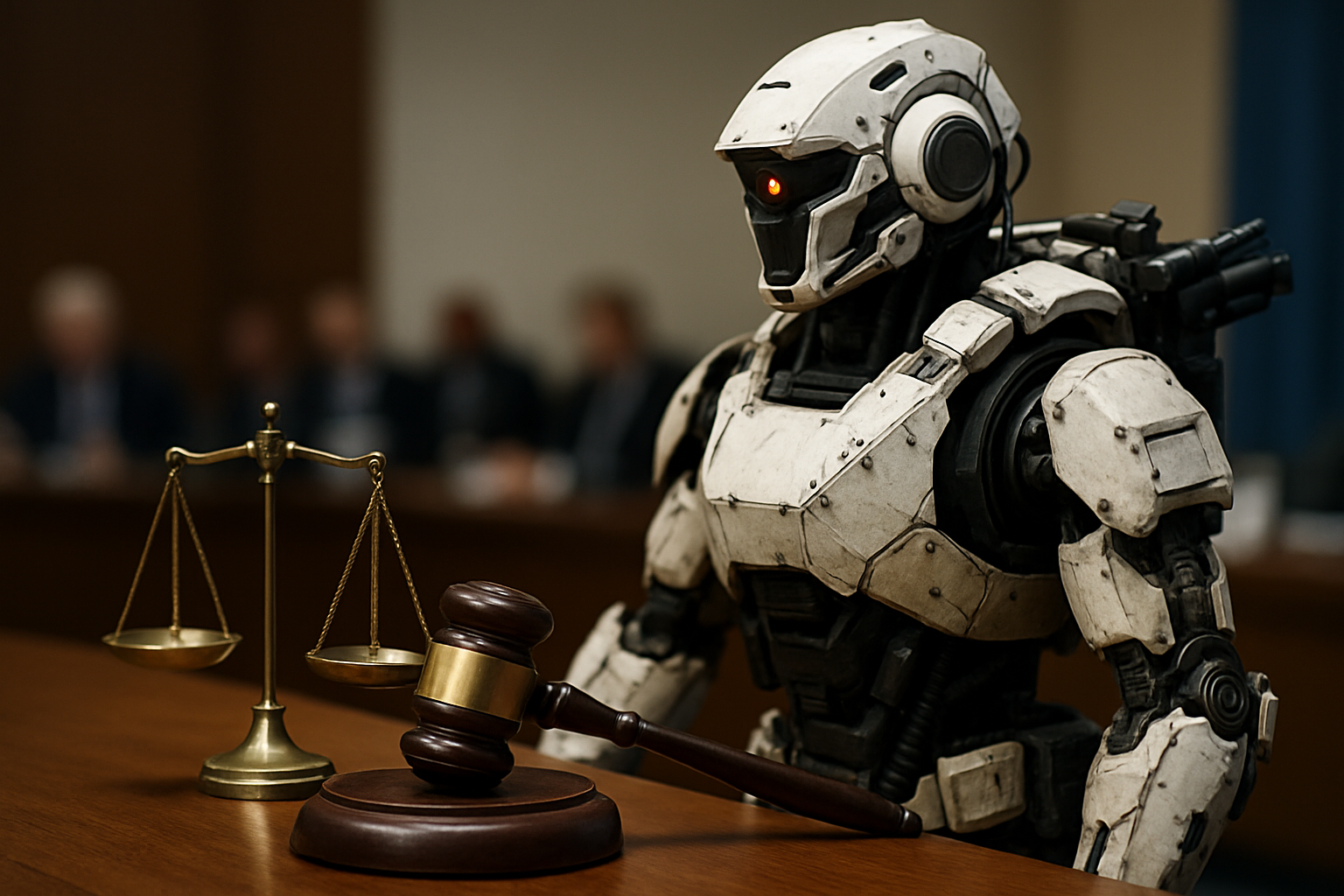Algorithmic Justice: The New Frontier in Legal Decision-Making
Introduction: As technology continues to reshape our world, the legal system is not immune to its influence. Algorithmic justice, a revolutionary concept blending artificial intelligence with legal processes, is gaining traction globally. This article explores the emergence of AI-driven decision-making in courtrooms, its potential benefits, and the ethical concerns it raises.

How Algorithmic Justice Works
At its core, algorithmic justice relies on machine learning algorithms trained on vast datasets of past legal cases and outcomes. These systems analyze patterns and correlations to predict future outcomes or suggest decisions. For instance, in sentencing, an AI might consider factors such as the defendant’s criminal history, the nature of the crime, and statistical recidivism rates to recommend a sentence range.
Potential Benefits of AI-Assisted Legal Decision-Making
Proponents argue that algorithmic justice can bring numerous advantages to legal systems worldwide. One key benefit is the potential for increased consistency in decision-making. By relying on data-driven insights, AI could help reduce disparities in sentencing that arise from human biases or inconsistencies between different judges.
Efficiency and Cost-Effectiveness
Another significant advantage is the potential for improved efficiency in court proceedings. AI systems can process vast amounts of information quickly, potentially speeding up case resolutions and reducing backlogs. This could lead to cost savings for court systems and faster justice for defendants and plaintiffs alike.
Ethical Concerns and Criticisms
Despite its potential benefits, algorithmic justice faces substantial criticism and ethical concerns. One primary issue is the potential for bias in the algorithms themselves. If the historical data used to train these systems contains inherent biases, the AI could perpetuate or even amplify these biases in its decisions.
Transparency and Accountability Challenges
Another significant concern is the lack of transparency in AI decision-making processes. The complex nature of machine learning algorithms often makes it difficult to explain how a particular decision was reached. This “black box” problem raises questions about accountability and the right to due process.
The Human Element in Justice
Critics also argue that justice requires human judgment, empathy, and an understanding of context that AI systems currently lack. They contend that reducing legal decisions to data points oversimplifies the complexities of human behavior and circumstances.
Legal and Constitutional Implications
The implementation of algorithmic justice also raises important legal and constitutional questions. For instance, does the use of AI in sentencing violate a defendant’s right to due process? How can the right to appeal be preserved when decisions are made by algorithms?
The Path Forward: Balancing Innovation and Ethics
As algorithmic justice continues to evolve, finding the right balance between technological innovation and ethical considerations is crucial. Many experts advocate for a hybrid approach, where AI assists human judges rather than replacing them entirely. This could leverage the strengths of both AI and human judgment.
Regulatory Frameworks and Oversight
Developing robust regulatory frameworks for algorithmic justice is essential. These should address issues of transparency, accountability, and fairness. Regular audits of AI systems, diverse representation in algorithm development teams, and clear guidelines for AI use in legal settings are all important considerations.
In conclusion, algorithmic justice represents a significant shift in how legal decisions may be made in the future. While it offers potential benefits in terms of efficiency and consistency, it also raises profound ethical and legal questions. As this technology continues to develop, ongoing dialogue between legal professionals, technologists, ethicists, and policymakers will be crucial in shaping its responsible implementation. The challenge lies in harnessing the power of AI to enhance, rather than undermine, the principles of justice and fairness that underpin our legal systems.





